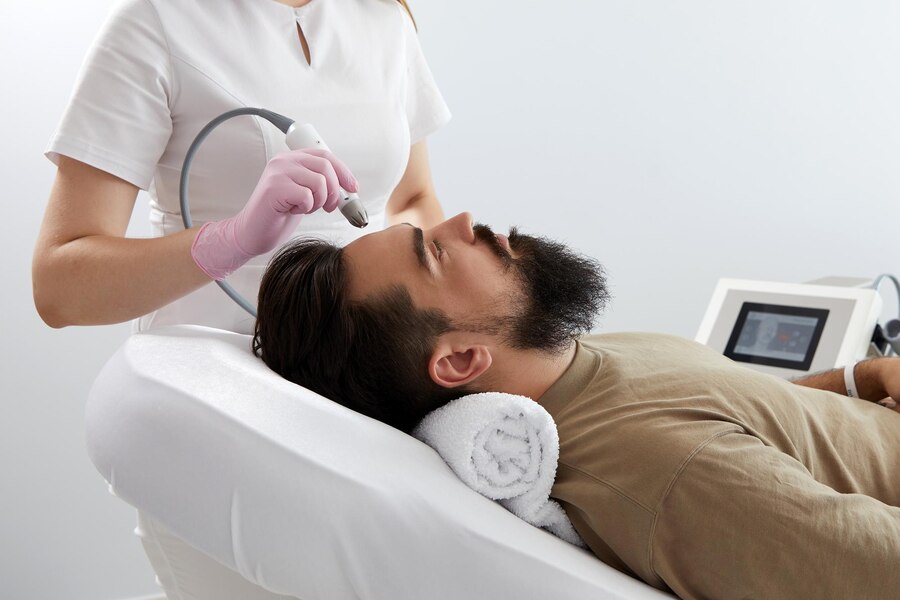
In recent years, laser hair growth treatment has gained significant popularity as a potential solution for hair loss and promoting hair regrowth. With claims of being a non-invasive and effective method, many people are curious to know whether laser hair growth treatment truly lives up to its promises. In this article, we will dive deep into the subject and explore the science behind laser hair growth treatment, separating fact from fiction.
Understanding Laser Hair Growth Treatment:
Laser hair growth treatment, also known as low-level laser therapy (LLLT) or red-light therapy, involves using specific wavelengths of light to stimulate hair follicles and encourage hair regrowth. The concept behind this treatment is based on the ability of light energy to penetrate the scalp, triggering biochemical changes within the cells and enhancing the overall health of hair follicles.
The Science Behind Laser Hair Growth Treatment:
Numerous studies have been conducted to evaluate the effectiveness of laser hair growth treatment. Research suggests that low-level laser therapy can:
Promote Blood Circulation: The laser light stimulates the microcirculation in the scalp, increasing blood flow to the hair follicles. Improved blood circulation provides vital nutrients and oxygen, promoting a conducive environment for hair growth.
Stimulate Hair Follicles: Laser therapy energizes the hair follicles, extending their growth phase (anagen phase) and preventing premature shedding.
Reduce Inflammation: Inflammation is a common factor contributing to hair loss. Laser therapy helps reduce inflammation in the scalp, which can support healthy hair growth.
Modulate DHT Levels: Dihydrotestosterone (DHT) is a hormone linked to hair loss in individuals with a genetic predisposition. Studies have suggested that laser therapy can help modulate DHT levels, potentially slowing down or preventing hair loss.
The Effectiveness of Laser Hair Growth Treatment:
While laser hair growth treatment has shown promising results in many studies, it’s important to note that individual responses may vary. Factors such as the severity of hair loss, underlying causes, and consistency of treatment can influence outcomes.
It’s also worth mentioning that laser therapy is typically most effective for individuals experiencing androgenetic alopecia, commonly known as male or female pattern baldness. It may not yield the same results for other types of hair loss, such as alopecia areata or scarring alopecia.
Conclusion:
Laser hair growth treatment has emerged as a viable option for individuals seeking non-invasive solutions to combat hair loss and promote hair regrowth. While it may not be a miracle cure for everyone, the scientific evidence suggests that it can be effective in stimulating hair follicles, improving blood circulation, and reducing inflammation. However, it’s important to consult with a healthcare professional or trichologist before embarking on any hair loss treatment journey to ensure it is suitable for your specific condition. With consistent use and realistic expectations, laser hair growth treatment may be a valuable tool in your hair care arsenal.

